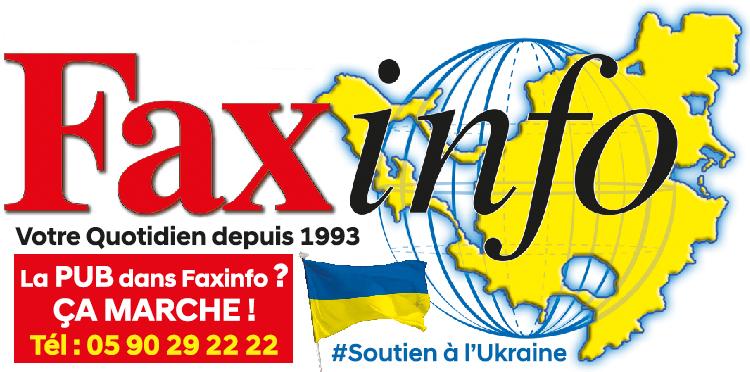On Friday March 27, during an exceptional Council of Ministers, five additional ordinances were adopted to deal with the epidemic of covid-19.
- Keeper of the Seals, Minister of Justice, and the Minister of the Economy and Finance presented an ordinance adapting the rules relating to the difficulties of businesses and agricultural holdings to the health emergency and amending certain provisions of criminal procedure.
This ordinance temporarily adapts the procedures applicable to these actors, in order to take into account their conditions of implementation during the state of health emergency and the months following its cessation. The ordinance favors the use of preventive procedures and lengthens the time limits for collective procedures. In particular, the legal duration of conciliation procedures is automatically extended by a period equivalent to that of the period of health emergency increased by three months. In the same proportion, the legal durations of safeguard plans and of judicial recovery may be extended, as well as the procedural deadlines imposed on the administrator or the legal representative, the liquidator or the commissioner for the execution of the plan. In addition, the ordinance lengthens the periods during which the claims resulting from breaches of the employment contract or the sums due to employees are taken into account, under the insurance against the risk of non-payment. Finally, it supplements the provisions of the ordinance of March 25, 2020 adapting the rules of criminal procedure on the basis of emergency law no. 2020-290 of March 23, 2020 to deal with the epidemic of covid-19, with regard to the time limits for judgment of the investigating chamber.2. The Minister of Labor presented an order for emergency measures in relation to partial activity.
In order to face the epidemic of covid-19 and to avoid the dismissals which could result from it due to the fall of activity, this ordinance extends the benefit of the device of partial activity to the employees who were there until then excluded, such as employees employed at home by individuals or maternal assistants, employees under private law in public enterprises insuring themselves against the risk of unemployment, certain seasonal employees and employees, working on national territory, employed by foreign companies with no establishment in France.
The ordinance adjusts the compensation rules for employees and apprentices and adapts them to take into account situations in which employees are subject to equivalence schemes in terms of working hours or in which they are not paid based on an hourly duration.
Finally, in order to facilitate the implementation of this system by employers, it simplifies for employees the methods for calculating the generalized social contribution in an exceptional and temporary manner. - The Minister of Action and Public Accounts presented an ordinance adapting the law applicable to the operation of public establishments and administrative collegiate bodies during the state of health emergency.
This text should make it possible to ensure the continuity of administrative action by adjusting the deliberative rules. With the exception of the deliberative bodies of the territorial collectivities and their groupings which will be the subject of a specific text, it allows public establishments, independent administrative authorities, private persons charged with an administrative public service mission or any collegial administrative body, in particular the staff representative bodies, to deliberate, during this period, electronically. It organizes, when the urgency justifies it, the delegation, also by dematerialized means, of certain competences of the deliberative body of these bodies for the benefit of the executive organ on the condition that this latter accounts for it.
To cope with the difficulties of renewing the members or leaders of these bodies during the period of state of health emergency, the text extends the mandates at the latest until June 30, 2020 or, when this renewal involves carrying out a election, until October 31, 2020.4. The Minister for Action and Public Accounts and the Minister for Higher Education, Research and Innovation presented an order relating to the organization of examinations and competitions during the health crisis arising from the covid-19 epidemic.
In order to take into account the difficulties resulting from this epidemic on the organization of higher education and the public service, this text makes it possible to adapt the procedures for issuing higher education diplomas, including the baccalaureate, as well as those relating to access routes to the corps, employment executives, grades and jobs of public officials. These adjustments must be made in accordance with the principle of equal treatment of candidates. They may relate to the nature of the tests, their number, their content, their coefficient or their conditions of organization. The composition of the jury, the quorum rules and the deliberation methods may also be adjusted.
With regard to access routes to the public service, it will be possible to fill vacant posts by using the complementary lists of previous competitions. Registration on the lists of aptitudes in the territorial public service will be extended by two months after the period of health emergency.5. The Minister of Culture presented an order relating to exceptional aid for holders of copyright and related rights due to the consequences of the spread of the covid-19 virus and the measures taken to limit this spread.
The text provides for exceptionally authorizing collective management organizations to use the sums which the law requires them to devote in particular to artistic and cultural actions, to financially support authors and artists deprived of economic revenue because of the repercussions caused by the coronavirus health crisis.
Collective management organizations will have until December 31, 2020 to pay aid to holders of copyright and neighboring rights whose income from the exploitation in France of their works and services has been seriously affected by the health crisis. and measures to combat it. This period will allow them to collect and examine individual requests which will be submitted to them by rights holders in difficulty.
6,123 total views






No comments